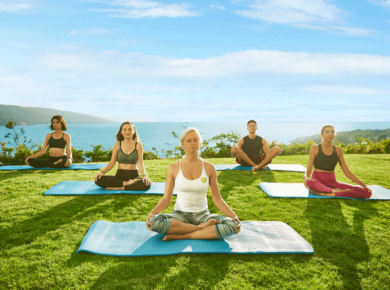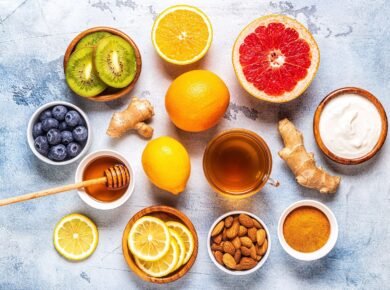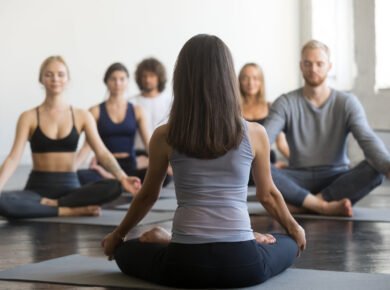A warm welcome to our blog! In today’s fast-paced world, many of us are looking for ways to improve our health and well-being. And guess what? We’ve found some amazing ancient remedies that have been passed down through generations! These remedies are rooted in customs and knowledge from different cultures and provide some great insights on how to lead a more balanced and harmonious life. So, in this blog post, we’ll be exploring these traditional remedies and how they can benefit us in our modern lives.
Table of Contents
- Ayurveda – The Science of Life
- Traditional Chinese Medicine – The Art of Balance
- Yoga and Meditation – Union of Body and Mind
- Herbal Remedies – Nature’s Healing Gift
- Ayurvedic Nutrition – Food as Medicine
- Aromatherapy – The Power of Scent
- Mindfulness – Ancient Wisdom for Modern Stress
- Traditional Healing Practices – From Native American to African Traditions
- Homeopathy – The Power of Small Doses
- Integrating Ancient Wisdom with Modern Health
Ayurveda – The Science of Life

For more than five millennia, the ancient Indian medical system known as Ayurveda has been in practice. In order to enhance general well-being, it emphasizes the harmony of the three parts of the body. The use of herbs, diet, and changes in habits to restore balance are among the central ideas of Ayurveda. Doshas are individual constitutions based on the elements.
Traditional Chinese Medicine – The Art of Balance

Another traditional medical system that stresses the equilibrium of qi, or life energy, within the human being, is traditional Chinese medicine (TCM). TCM includes acupuncture, herbal medicine, and exercises like tai chi. These treatments seek to encourage wellness and energy while reestablishing a state of balance.
Yoga and Meditation – Union of Body and Mind

Indian customs are the foundation of both yoga and meditation. The relationship between the body, mind, and spirit is emphasized by these practices. Asanas (yoga poses) and meditation practices enhance mental clarity and emotional balance in addition to physical flexibility and relaxation.
Herbal Remedies – Nature’s Healing Gift
Herbs have long been used for medicinal purposes. Plants have been used for medicinal purposes by numerous ancient cultures, including the Greeks and Native Americans. As ginseng, turmeric, and echinacea gain popularity due to their many health benefits, herbal remedies still play a major role in holistic health right now.
Ayurvedic Nutrition – Food as Medicine
Ayurvedic nutrition is a comprehensive eating plan that takes into account each person’s dosha type. It places a strong emphasis on using whole, in-season foods and spices to support healthy digestion and general well-being. This method of approaching nutrition offers helpful insights into maintaining a balanced diet by taking into account not only what you eat but also when and how.
Aromatherapy – The Power of Scent

Essential oils are used in aromatherapy, a healing modality with roots in ancient Egyptian and Roman practices. Essential oils are a useful tool for modern wellness because of their aromatic compounds, which can help reduce stress, promote better sleep, and elevate mood.
Mindfulness – Ancient Wisdom for Modern Stress
Derived from Buddhist meditation practices, mindfulness has become increasingly popular in the last few years. It lessens stress and improves our general well-being by teaching us to live in the present moment. You can use mindfulness in many areas of your life, such as relationships, work, and even eating and respiration.
Traditional Healing Practices – From Native American to African Traditions

Many indigenous cultures have developed distinctive healing techniques that have been handed down through the ages. In order to address physical, mental, and spiritual health, these traditions frequently entail herbal remedies, rituals, and the guidance of healers. Examining these antiquated methods can shed light on different methods of achieving well-being.
Homeopathy – The Power of Small Doses

Homeopathy is an alternative medical system that stimulates the body’s natural healing processes by using highly diluted substances. It was created in the latter half of the 18th century, uses concepts from antiquity, and is still applied to a number of medical issues.
Integrating Ancient Wisdom with Modern Health
Incredibly critical to acknowledge the importance of traditional treatments and practices in the pursuit of improved health and well-being. Even though contemporary medicine has come a long way, the natural and holistic methods of the past are still relevant to our daily lives. Including these tried-and-true solutions in our contemporary routines can provide a comprehensive approach to happiness.
Conclusion, traditional medicines are not just artefacts from the past. These are timeless lessons that can improve our quality of life and advance our current state of health and well-being. From yoga to aromatherapy, from Ayurveda to TCM, these disciplines offer holistic approaches that take into account not just the physical but also the mental and spiritual dimensions of health. Accepting these miracles of wellness can assist us in achieving balance, lowering our stress levels, and living happier, healthier lives. So let’s investigate this wealth of historical knowledge and incorporate it into our modern approaches to health and wellness.










